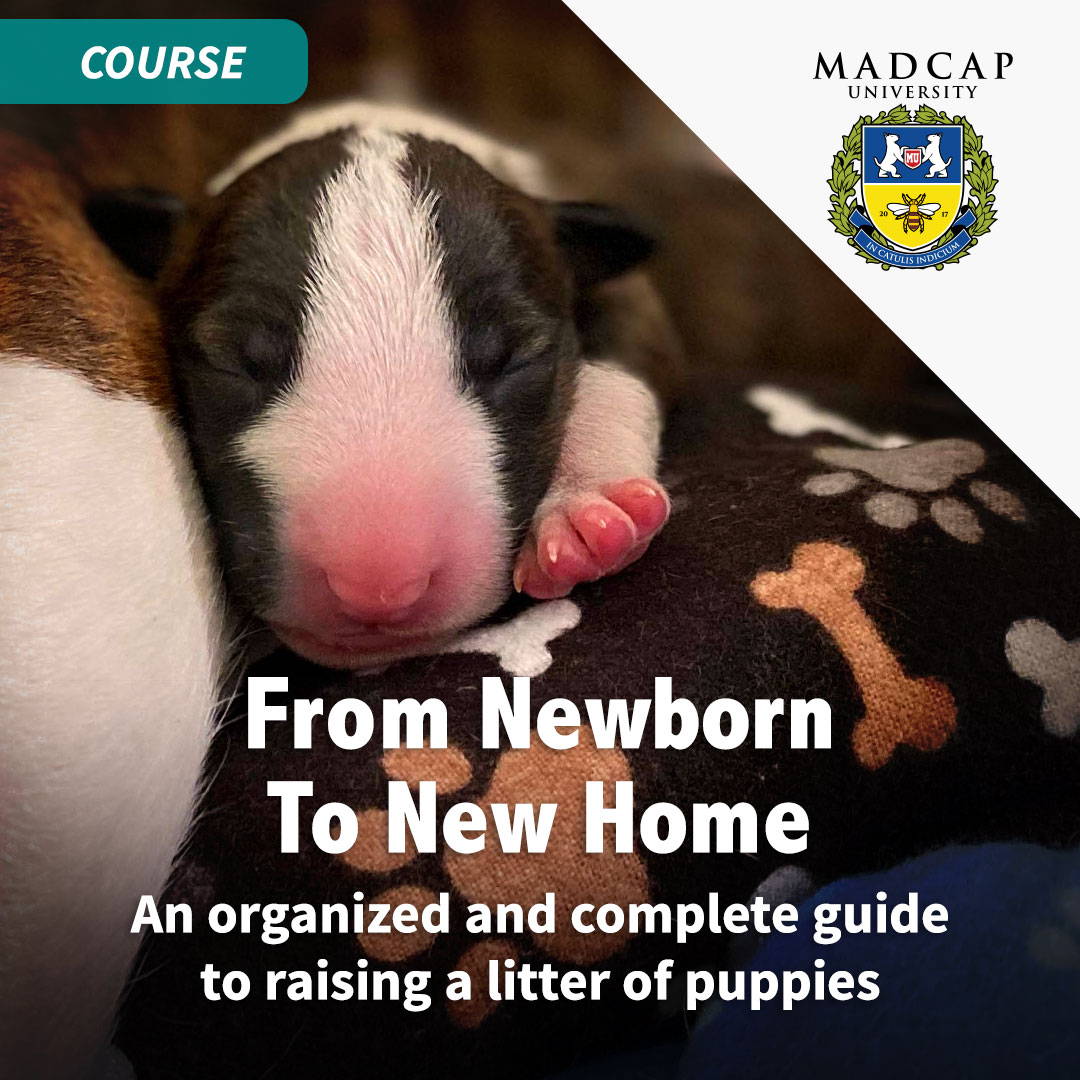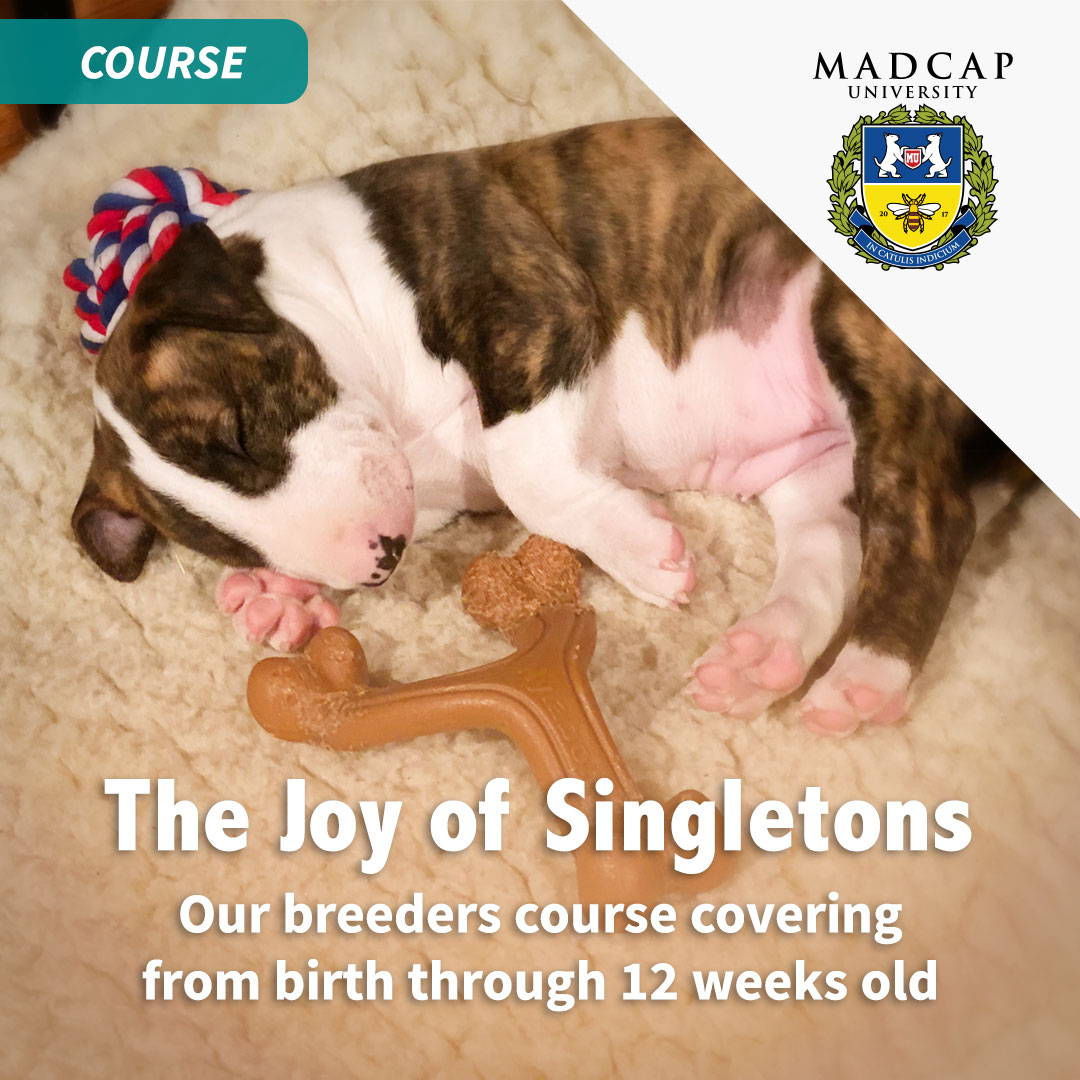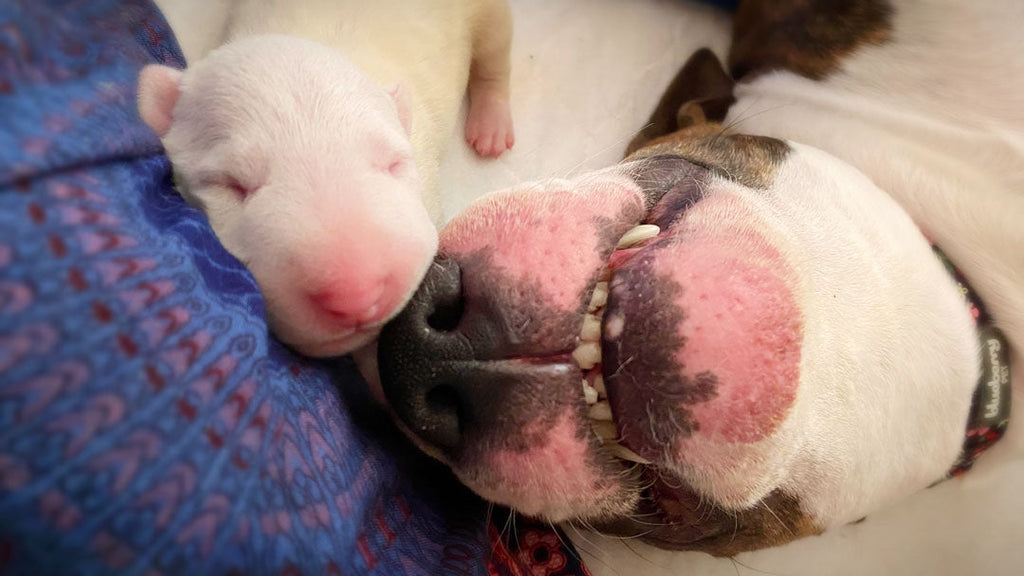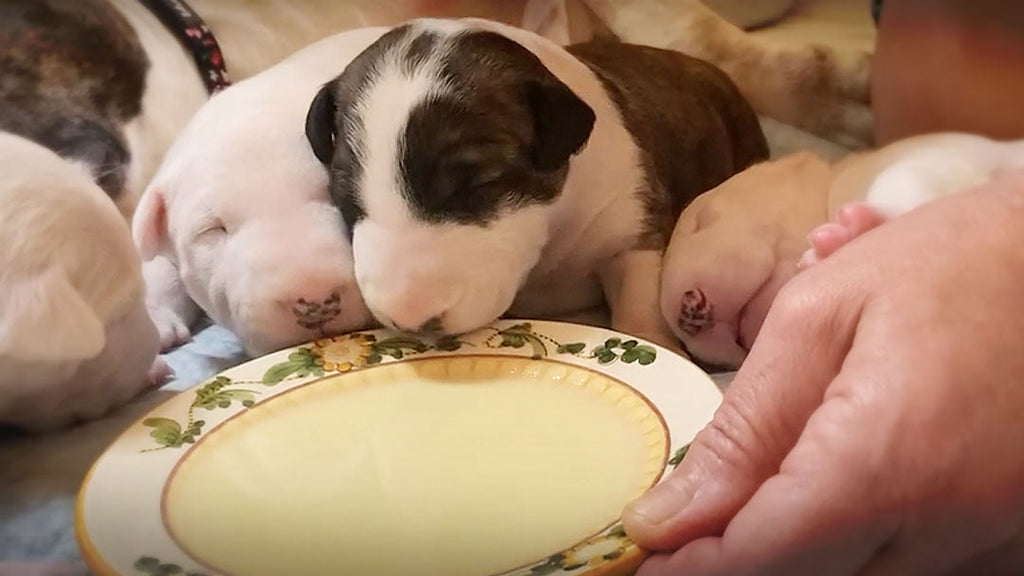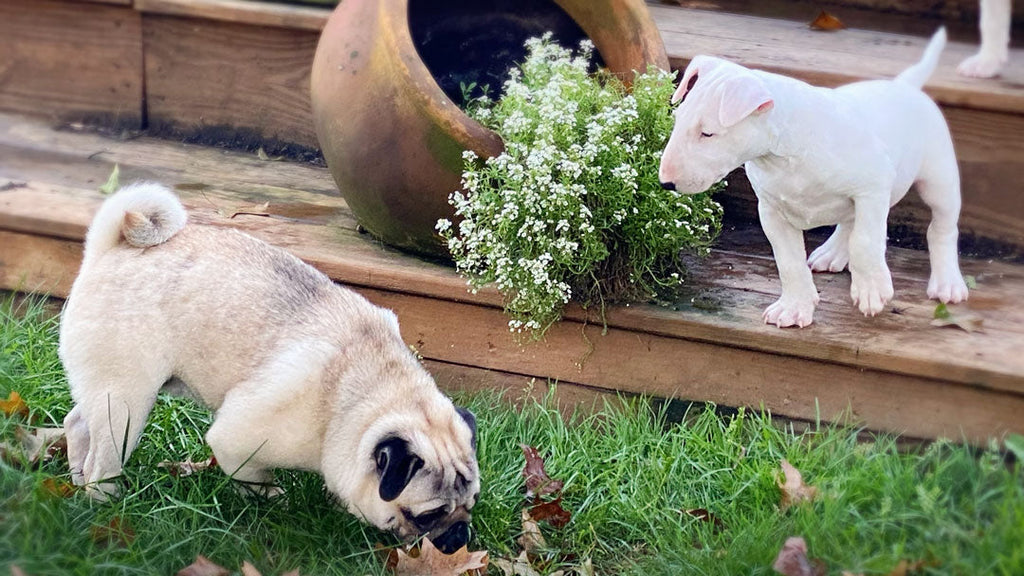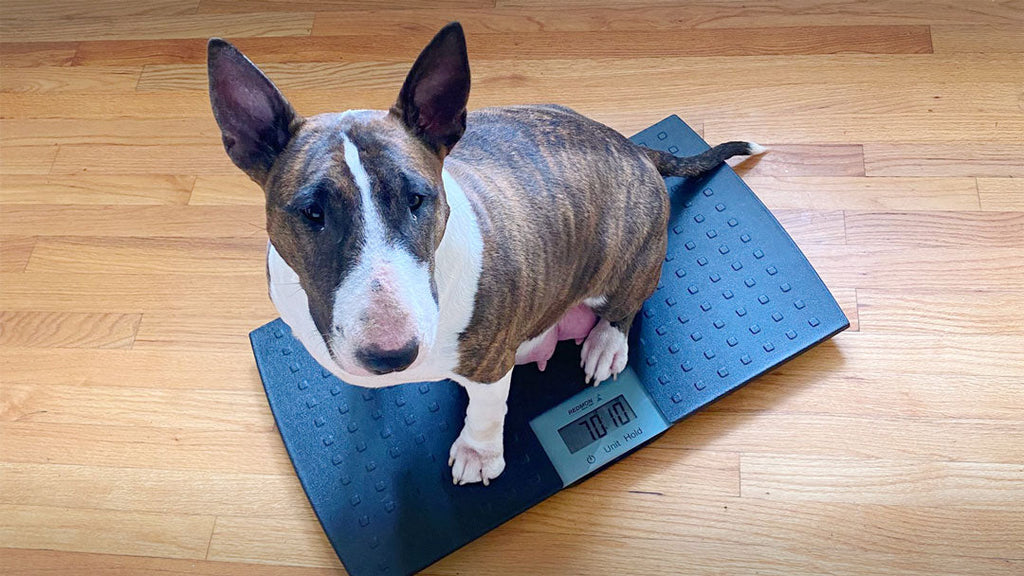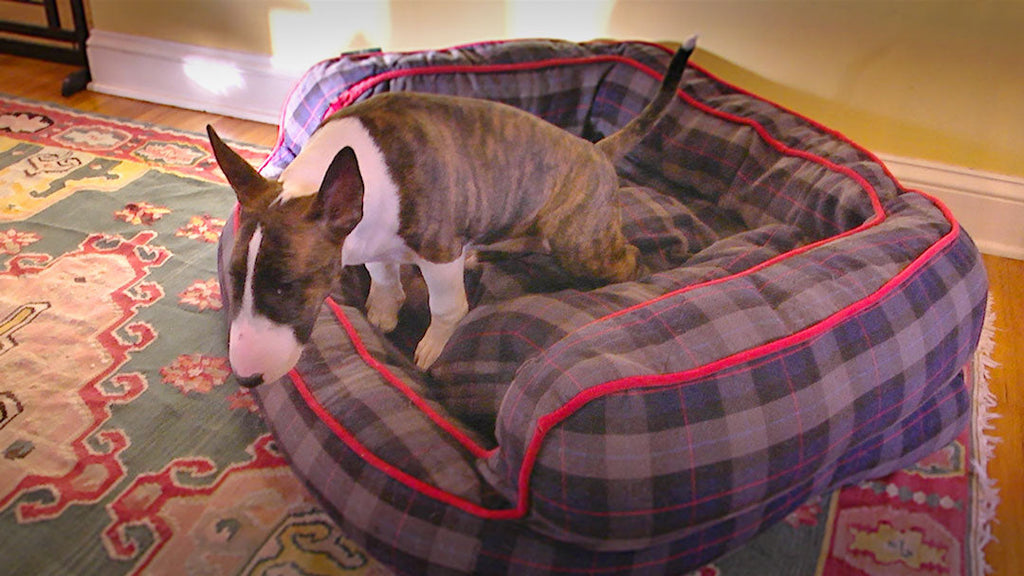How Long Should Puppies Stay With Their Mother?
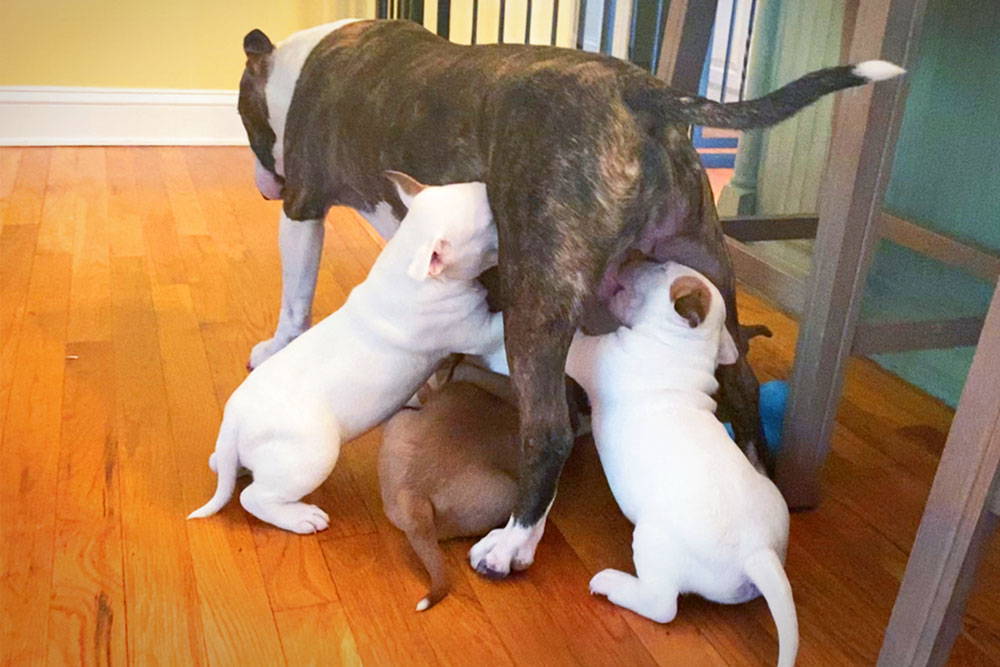
2022 Update: In our new course on puppy rearing for breeders (From Newborn to New Home), we have been seen a HUGE interest in more information about weaning. We've had some amazing discussions on the subject and the commonality that we have seen is that there is no "one right way or time" to wean puppies. We'll be presenting more on this, but, for now, this article I wrote on weaning is very much on point and something that everyone should take to heart...there is never one right thing to do, but there is always A right thing to do. And that is, do what the puppies (and the dam) are asking for!
There is a thought floating around out there that puppies "need to stay with their mother" until 8 weeks old. Not sure where that particular bit of lore originated, but it continues to be the cause of much misunderstanding.
And the misunderstanding can be damaging. Breeders get shamed for separating bitches from their puppies or they try to compel their bitches to stay with the puppies for an amount of time that is unreasonable for that particular group. In the worst cases, breeders will trap dams in with puppies, forcing bitches to confront their puppies because there is no other escape. As we discuss in chapter six of Puppy Culture, the consequences of this are bad for the puppies, bad for the dams, and bad for breeding programs. So, let’s clear this up and address “real” best practices for when to wean puppies.
Best Practices for Weaning
Our most recent litter turned 5 weeks old on Friday and here are two videos of them – one with their mother and one with their father. You can see which relationship is more emotionally nourishing at this point.
Velvet still loves her puppies but by the time they turned five weeks old, she was much more interested in her own agenda
Daddy Theo, on the other hand, could not wait to get in with the puppies and help shape them into civilized citizens
By 5 weeks old, our puppies are eating massive amounts of “real” food, our bitches are “done” with the puppies and our household dogs are clamoring to spend time with them.
These five week old puppies are digging into a raw mix, augmented with double fermented kefir and fermented vegetables with egg yolks and a small amount of oatmeal. By the time they are 6 weeks old each of these little puppies will eat as much as an adult dog. It's truly astounding.
My bitches will take a notion from time to time and nurse their puppies in the coming weeks, but my bitches also don’t feel obliged to pull their punches when it comes to playing, so these visits are always supervised.
So, for our dogs, the puppy raising baton usually gets passed from mom to the rest of the extended family by 5 weeks old.
Now, there are certainly some more neotenous breeds where the puppies are still nursing at 5, 6, and even 10-12 weeks old, and any dam will have much more patience with singletons or small litters, so, please, do not take my experience with my dogs as a rule for your dogs. My experience is merely an illustration that the idea that puppies "should" stay with their mother for 8 weeks is a random idea that has little generalized basis in fact.
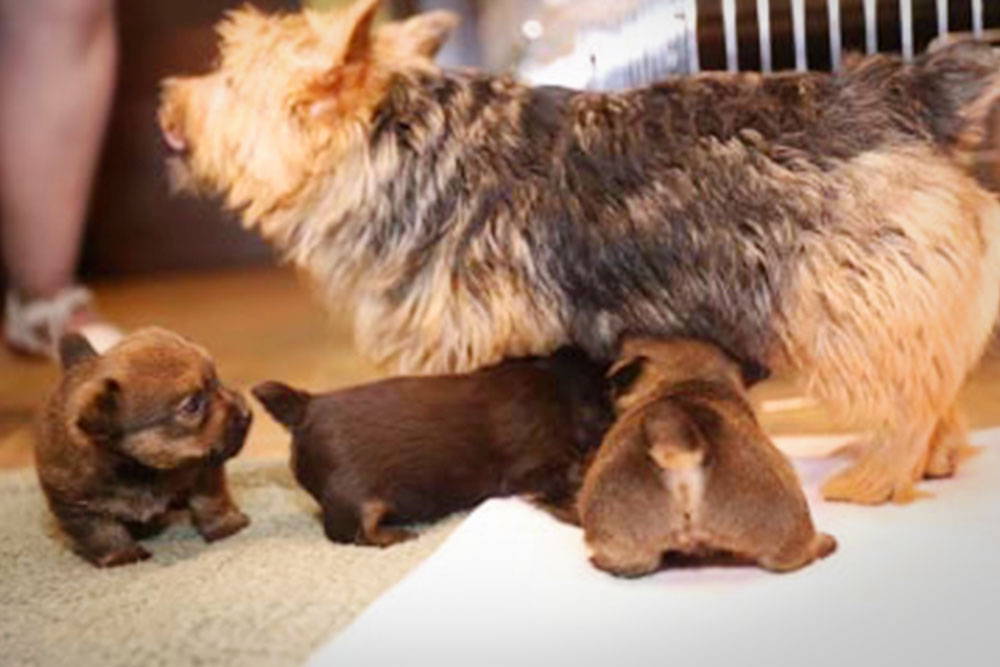
My friends who breed small breed dogs tell me that their bitches typically are still nursing their puppies until 8-9 weeks old. Photo courtesy of Dig-n-Pop Norwich Terriers.
What I’m getting at, here, is that you should disabuse yourself of the notion that there is a particular age through which the puppies need to “stay with their mother.” They should stay with their mother for as long as that relationship is a functional one and the puppies are getting positive input from the interactions. And you can only determine that by observation. Let me put that in bold for you:
Puppies should stay with their mother for as long as that relationship is a functional one and the puppies are getting positive input from the interactions. And you can only determine that by observation.
Why the Confusion?
I am speculating, but my guess is that this "puppies must stay with their mother through eight weeks" originated because some litters and mothers do stay together that long, and the ones that do are generally more docile breeds or docile examples of a breed. So, the thought became that forcing puppies and dams to stay together for 8 weeks will somehow work magic on the puppies. But this is simply false. Correlation is not causation, especially in this case.
And that incorrect assumption is likely the source of another fiction, which is that harsh maternal corrections are a natural part of the puppy raising process. As we detail in Chapter Six of Puppy Culture, studies show that harsh maternal corrections correlate with negative adult personality traits when the puppies grow up. Sure, if you force a dam to stay with puppies after she is done with them, you’re going to get some harsh corrections. But that does not mean it’s natural or right.
So, I think this misunderstanding about weaning is an interesting case of:
- Incorrectly identifying a correlation as a cause (that puppies all need to stay with their mother for 8 weeks because puppies who stay with their mothers for 8 weeks happen to be more docile puppies) and
- A subsequent observation (that many mothers use harsh corrections or rough play as the puppies get older), and then
- Those two things forming an echo chamber and reinforcing each other as "normal."
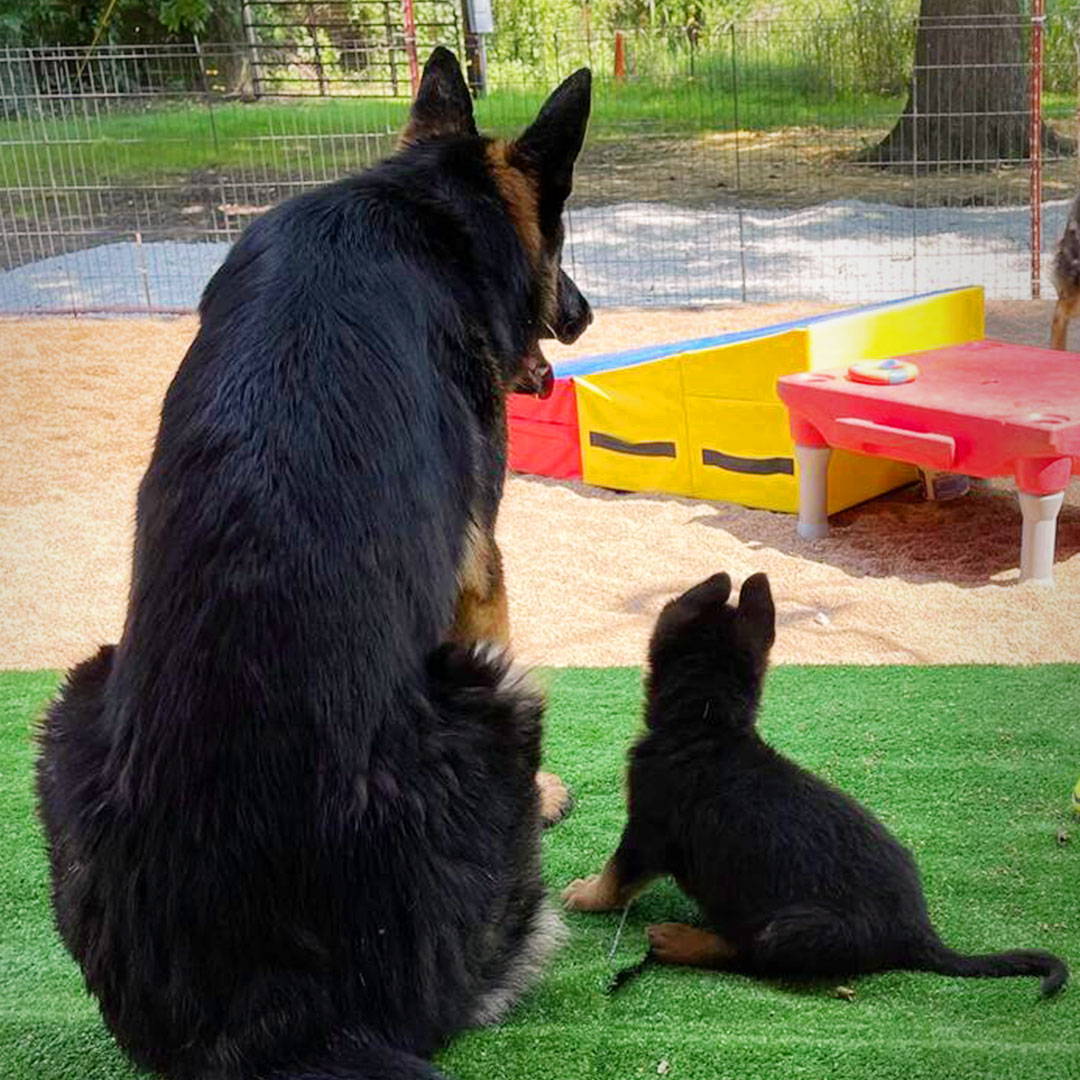
Nanny Spark explains squirrels to baby Lynx. Photo courtesy of Austerlitz German Shepherds.
In the end, you are the only person who can look at your litter and determine whether it's still emotionally nourishing for puppies to remain with their mother, and I am hereby giving you permission to turn off the noise about what "should" be.
You will probably find that the "right" age to wean puppies varies by several weeks, even within your own litters of the same breed. This is correct, don't second guess it. Trust your observations and do what seems right to you!
Closing With a Laundry List
Some other handy things to know about separating mothers and their puppies - beyond the scope of this article but people bring them up often in the context of this conversation so here goes:
- Yes, this cuts both ways. Meaning to say, sometimes the puppies should stay with their mother much longer than is convenient. You might like to be getting on with training or placing them, but sometimes puppies and their dams are on their own schedule and you should honor that.
- There are dams who are behavioral outliers and can exhibit pathological mis-mothering in incredibly diverse ways: from maternal aggression toward neonates to refusing to wean a litter - ever. Putting aside the question of why these things happen and what that means in terms of your dam and your breeding program, you have to do what's right for the puppies and step in when necessary.
- There can be times when the health of the puppies or the health of the dam require you to separate the litter from its dam. You don't get a choice in the matter, you have to do it.
- The good news is that neither we nor any of our friends have had a bad outcome related to a forced weaning. It's a lot more work for you and we do rely heavily on our other household dogs to help with rearing in these cases, but, so far at least, it has always worked out just fine.

This article was originally updated on puppyculture.com in 2021
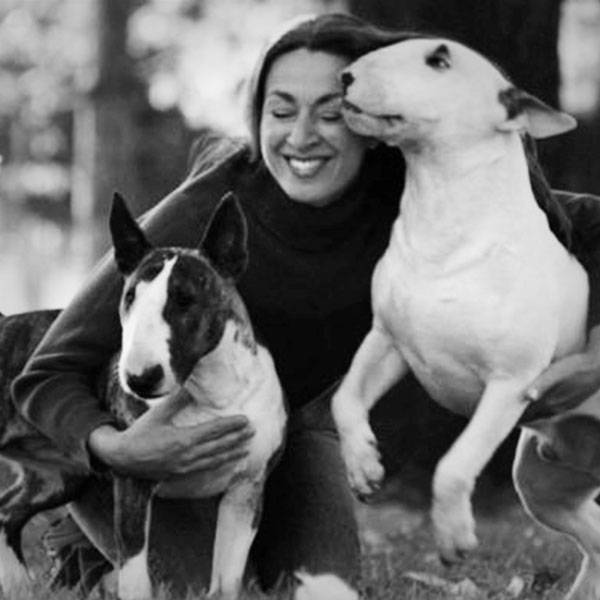
About the Author
Jane Messineo Lindquist (Killion) is the director of "Puppy Culture the Powerful First Twelve Weeks That Can Shape Your Puppies' Future" as well as the author of "When Pigs Fly: Training Success With Impossible Dogs" and founder of Madcap University.
Jane has had Bull Terriers since 1982 and she and her husband, Mark Lindquist, breed Bull Terriers under the Madcap kennel name.
Her interests include dog shows, dog agility, gardening, and any cocktail that involves an infused simple syrup.

